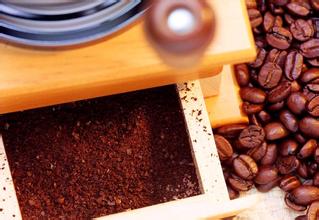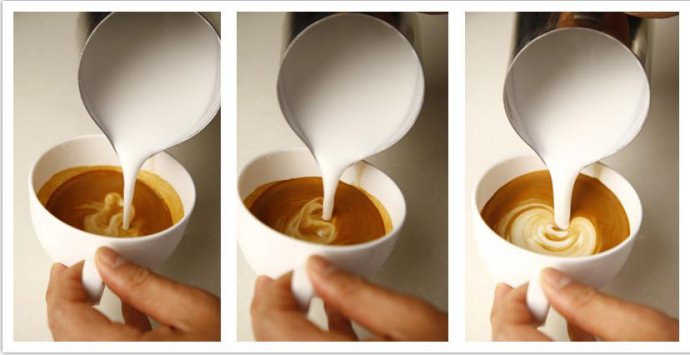Key points of coffee brewing knowledge: what factors affect the quality of your hand-brewed coffee?
After baking for a long time, there are also many friends who took the beans home to brew themselves in my shop. Among the many brewing methods, hand brewing can be said to be the most popular coffee brewing method at present. It is simple, easy to learn, easy to control, and the taste can be accepted by most people. However, there are also many friends who are not sure how to find a taste that suits them when making coffee. Now John will briefly introduce what factors affect a cup of hand-brewed coffee and how much influence it has.
First, let's start with the supplies and tools you need.
Consumables: coffee, filter paper, water
Utensils: filter cup, pot, water filling appliance, weighing appliance, timing tool, thermometer, grinding tool
Let's start with the most important.
First, the coffee itself.
We make coffee, not orange juice, not green tea, so the coffee itself determines the basic taste of this cup of coffee. For example, whether the coffee is sun-cured or washed, whether it comes from Indonesia in Asia, Colombia in South America, or Ethiopia in Africa. When coffee is certain, the taste in your cup is actually 50% certain. This was the most crucial link.
The second is the degree of grinding and uniformity of coffee
The degree of coffee grinding directly determines the amount of coffee substances extracted during the brewing process. In unit time, the coarser the coffee substance, the harder it is to extract, and the faster the extraction speed, the lighter or stronger the taste. Under normal circumstances, our coffee mill can not be absolutely uniform, after you choose a good thickness, there will generally be a certain proportion of powder that does not meet your requirements, which will increase the layering of coffee taste, and excessive unevenness will make coffee taste "out of control".
Again, the quality and temperature of the coffee.
Water quality varies across the country, and it is generally believed that water quality in the north is not as good as that in the south. John is located in the capital. Although it is the capital, the quality of tap water is not special. It is extremely hard. There are sediments such as soda in the boiled water. I have hardly tried to make coffee with such water. I don't think I need to explain too much. Whether such water is good for coffee or not, I don't think anyone needs an answer. So, we have two options for coffee water, tap water, treated water and bottled water. The so-called tap water treatment water is tap water treated by water softener, water purifier or pure water machine. This water can be used to make coffee, and the taste is far better than tap water directly. Another category is the use of purchased mineral water, mineral water, purified water to make coffee. Cost isn't what we're thinking about today, so we can basically default to a more expensive treatment, maybe, we're talking about maybe it's going to taste better. However, here we want to emphasize that "pure" water is not suitable for making coffee, that is, water treated by a water purifier or purchased pure water. This kind of water does not have water alkali, but due to the lack of minerals in the water, the taste of the water itself is lower, and the coffee made with pure water often tastes stiff and lacks a sense of hierarchy. Why is it? I am not a chemist. I really can't say one or two.
On the other hand, water temperature is also an important indicator of coffee taste. When I personally make coffee, I am used to using a water temperature of about 90 degrees, which is of course in line with my grinding thickness. You don't have to be so precise. In fact, you can fix a personal habit, such as standing for 1 minute or 1.5 minutes after the water is completely opened. Of course, you should adjust this time according to the temperature in the room. It is estimated that there will be a temperature difference between winter and summer.
The next important factor is the steeping time of the coffee
This is easy to understand, the longer the soaking time, the more substances will be extracted, and the taste will be about strong, and vice versa. However, what factors will affect the soaking time, let's discuss them in detail.
The first is the degree of coffee grinding, coarse water filtration fast, fine water filtration slow, which we can imagine, filter water fast, unit water naturally coffee and water contact time is short, taste will be weak, and vice versa.
Then is the filter, we commonly used a filter is filter paper, a good filter paper should be no odor, good water filtration. I have used a poor quality filter paper, very thin, but the filtering speed is very slow, only see the water injection, but not the downflow, which inevitably leads to a long soaking time. In addition, common filters include flannel and metal. It is generally believed that these materials have the best filterability, and the disadvantage is that the cost is high and may have the taste of pulp. Flannel is also widely believed to have excellent filtration effect, making coffee taste soft, high alcohol, but repeated use, flannel is easy to absorb the taste of coffee, causing cross-contamination. Finally, metal filters are considered to be the worst filters and also make it difficult to filter out some very fine coffee grounds.
There is also an element that affects the soaking time, which is the method and method of injecting water by hand. Some friends like to inject water in one breath, that is, uninterrupted water injection, some people like 2 times of water injection, some people like more times of water injection. You can try to count the time separately, you can find that the difference in water injection method can cause a great time difference, that is, the coffee soaking time in water is different. Usually my personal preference for 20 grams of coffee is steeping for about 2 minutes. Of course, if you use an ordinary kettle instead of a dedicated hand rinse pot, it may be difficult for you to control your water volume, and you will not be able to accurately grasp your filling time.
Then there is the proportion of water powder when brewing coffee.
When we make tea, we may all know the most basic truth, if you want to make it thicker, put more tea leaves. The same applies to coffee making. For stronger coffee, we put more coffee powder. However, if we want to make a stable cup of coffee that tastes the same every day, John recommends that we have a standard, or at least a personal, ratio of water to powder. John's personal habit is 20 grams of coffee, water injection 300 ml, that is, powder water ratio of 1:15. Of course, this is also on the premise that I fix the water temperature and grinding thickness. This is a basic universal ratio, which can then be fine-tuned to specific coffee and personal preferences.
These are the key factors John believes directly determine the taste of your hand-brewed coffee.
Speaking of this, in fact, we should have a little idea, in fact, the key factors of coffee making will interact, they will cycle. For example, coffee grinds are coarsely ground, the water will filter faster, and the taste will be lighter, but you can slightly increase the water temperature or increase the steeping time to adjust the taste of the cup. But no matter how you tweak it, you can't change your coffee beans. This is the theme of your cup of coffee. We'll talk to you about how to choose a coffee that suits you in a later article.
Source: Private Coffee Blog
Important Notice :
前街咖啡 FrontStreet Coffee has moved to new addredd:
FrontStreet Coffee Address: 315,Donghua East Road,GuangZhou
Tel:020 38364473
- Prev

Coffee knowledge points: roasting, grinding and brewing are the three steps of coffee.
Roasting, grinding and brewing are the three steps of coffee. The key points of grinding coffee beans: 1. The degree of grinding should be average; 2. Friction heat occurs when grinding beans; 3. Does not produce fine powder; 4. The degree of grinding suitable for extraction is selected. The degree of grinding should be understood simply and averagely. The coffee powder with fine grinding degree has a larger surface area and more extracted ingredients. The more soluble ingredients, the thicker the liquid, the stronger the bitterness. So
- Next

The essentials of coffee flower drawing and the introduction of coffee flower drawing skills (with a detailed explanation of heart-shaped flowers)
When it comes to flower drawing, Wang Sen School coffee pull technology can be said to dominate the world. Wang Beiqi, a graduate of Wang Sen School, easily challenged foreign coffee masters in the Chinese Coffee pattern Challenge at the Shanghai Hotel Exhibition on November 13 and won the championship. It cannot be said that teacher Wang Beiqi's flower drawing is the best, but the flower drawing skills of Wang Sen School are unparalleled in China. King
Related
- What is the meaning of lactic acid fermentation with coffee bean treatment?
- How to judge the state of foam by sound?
- How does the latte pull out the unicorn pattern? Come to get for a little trick to improve the flower pull!
- Will flower pulling affect the taste of the latte?
- Do you know the history of coffee?
- The difference between honey treatment and sun washing what is raisin honey treatment?
- What kind of milk can a novice use to make coffee foam to keep the foam longer? The correct method and skills of milking tutorial sharing
- Why do washed coffee beans taste sour? Flavor characteristics of washed Coffee
- Introduction to the skill of how to practice the size and height of water injection around the circle of hand-brewed coffee
- How do beginners practice coffee flower drawing from scratch?

